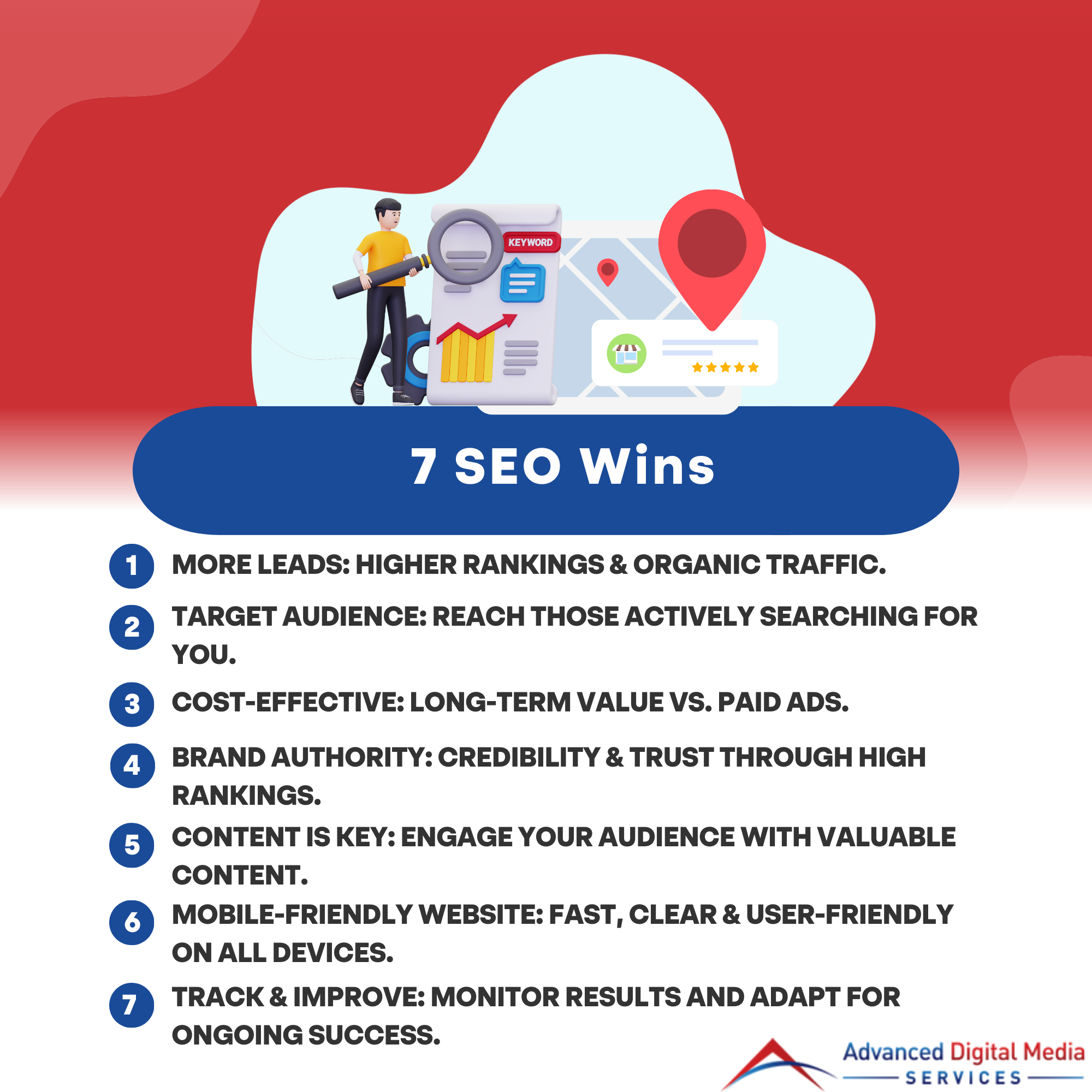The marketing industry has been significantly transformed due to the emergence of digital technology. There needs to be more than the conventional ways of reaching out to customers. In today’s digital world, businesses need a strong online presence to thrive. Search Engine Optimization (SEO) can help your business connect with your target audience and achieve its goals within your digital marketing strategy. It is a powerful and cost-effective method to reach your audience and gain visibility. By using SEO, you can improve your website’s ranking and make it easier for people to find you online.
Optimizing digital content through SEO is crucial for effective digital marketing. This post provides actionable steps to get started.
Why SEO Matters in Digital Marketing
Consider this: a large percentage of online users (studies suggest around 93%) rely on search engines to find information and make purchasing decisions. Your website must rank high on the search engine results page (SERP) when customers search for products or services related to your business.
This is where SEO plays a crucial role. Optimizing for search engines can increase traffic, visibility, brand awareness, leads, sales, and growth.
Here’s a breakdown of some key benefits SEO offers:
- Increased organic traffic: To achieve sustainable growth, it is important to attract qualified visitors who are actively searching for the offerings that you provide.
- Improved brand awareness: Higher search rankings lead to greater visibility, making your brand more recognizable within your target market.
- Cost-effective marketing: Compared to paid advertising, SEO offers a long-term, cost-effective solution for driving traffic to your website.
- Targeted audience: By focusing on relevant keywords, you ensure your website reaches users who are genuinely interested in your products or services.
- Credibility and trust: To build trust and establish your brand as an expert in your industry, it’s crucial to have a high search engine ranking.
Taking the First Steps with SEO
Ready to harness the power of SEO for your business? Here’s a practical guide to get you started:
- Keyword Research: To succeed in SEO, identify customer keywords. You can make use of tools like Google Keyword Planner, SEMrush, and Ahrefs to perform keyword research, which can significantly assist you in this area.
- Keyword Integration: Include keywords in your website, from the meta description to the headers, and throughout the body text. However, avoid keyword stuffing – this can negatively impact your ranking.
- Content is King: Create high-quality, informative, and engaging content that provides value to your audience. This could include blog posts, articles, infographics, videos, and more. In order to keep your website up-to-date and relevant, it’s important to update the content on it regularly. This will ensure that your visitors get the most accurate and current information.
- Website Optimization: A website should have a clear structure, simple navigation, and fast loading times. A mobile-friendly website is crucial in the modern era as a growing number of people use smartphones and tablets to browse the internet.
- Backlinks: Backlinks are links that point back to your site from other websites. Search engines view it as a sign of reliability and proficiency when a website is considered trustworthy and knowledgeable in its field. Focus on acquiring high-quality backlinks from relevant websites within your industry.
SEO Best Practices for Powerful Content
Remember, high-quality content is the backbone of a successful SEO strategy. Here are some best practices to keep in mind:
- Target the Right Audience: To engage your audience effectively, it’s crucial to personalize your message based on their specific needs and interests.
- Focus on User Intent: Go beyond just keywords and consider the intent behind the user’s search query. Do they seek information, a particular product, or a resolution to a problem? Your content should address their specific intent.
- Incorporate Visuals: Use compelling images, infographics, and videos to break up text and enhance user engagement.
- Optimize Title Tags and Meta Descriptions: Create precise and captivating title tags and meta descriptions that encourage clicks to your webpage.
- Internal Linking: Improve user experience and engagement by including relevant website links.
Build a strong SEO strategy foundation by following the best practices for sustainable growth. It’s important to remember that SEO is an ongoing process. Be patient and consistent with your efforts, and track your progress to refine your strategy over time.
Advanced SEO Techniques for Continued Success
While the tips above provide a solid foundation, SEO is a constantly evolving field. Explore these strategies to optimize your website and stay ahead:
- Technical SEO Audit: Perform regular technical SEO audits to fix website issues that affect search results performance. Tools like Google Search Console can help with this process.
- Structured Data Implementation: Implement structured data markup on your website. This provides search engines with richer information about your content, which can improve your website’s visibility in search results and potentially lead to rich snippets.
- Local SEO Optimization: If you have a physical business location, ensure your website is optimized for local search to attract nearby customers. This includes claiming your Google Business Profile, ensuring consistent NAP (Name, Address, Phone number) citations across the web, and creating location-specific content.
- Mobile-First Indexing: Make sure to optimize your website for mobile browsing to provide a positive user experience on all devices.
- Voice Search Optimization: With the rise of voice search assistants like Siri and Alexa, consider how users might search for your products or services using voice commands and optimize your content accordingly.
- Content Marketing Strategy: Create a clear plan for content marketing that covers all aspects of digital marketing, not just on-page SEO. This could involve guest blogging on relevant websites, creating high-quality infographics and videos, and engaging with your audience on social media.
Measuring SEO Success
It’s important to check how your SEO is doing so you can see if it’s working well and if there are any things you can improve. Here are some key metrics to monitor:
- Organic traffic: It is valuable to monitor the traffic on your website over a period of time. Google Analytics is one of the tools that provide valuable insights.
- Keyword rankings: Monitor your website’s ranking for your target keywords in search engine results pages.
- Backlink profile: It is important to monitor both the quantity and quality of the backlinks that are directed to your website.
- Conversions: SEO aims to increase conversions by selling, generating leads, or encouraging sign-ups for newsletters. Monitor your website’s conversion rate to measure the impact of your SEO efforts on your revenue.
Take Control of Your Online Presence
SEO is important for digital marketing success. Effective strategies can help your website rank higher in search results. It’s also important to monitor your progress regularly. Remember, SEO requires ongoing effort, staying up-to-date with the latest trends, adapting your approach as necessary, and leveraging the power of SEO to achieve your digital marketing goals.
Ready to take your SEO Magna, UT, strategy to the next level? Contact Advanced Digital Media Services today to find out how we can help you improve your digital marketing strategies.





